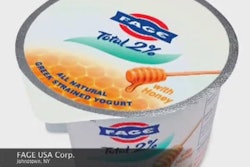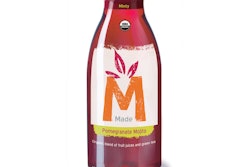But the ELC is also known for the speakers it attracts, and this year I was especially impressed with a presentation by Kay Plantes.
Plantes is a consultant based in Madison, WI, and her thoughts on steering clear of what might be called the commoditization trap are worth sharing. Since the audience she addressed consisted primarily of packaging machinery builders, her comments are especially appropriate for packaging machinery OEMs. But regardless of where you fit in the packaging scene, there’s value in these concepts.
Plantes’s basic message was that packaging machinery OEMs can ill afford to allow the marketplace to perceive them as purveyors of a commodity. The best way to avoid commoditization is to get inside the customer’s head. “Design every element of your business to address key issues or opportunities in your customer base,” Plantes told her PMMI audience. “Re-think your business. You are more than a maker of machines that meet the operational needs of your customers.”
To make her comments more concrete, Plantes used Kraft to illustrate what the marketplace is doing to today’s consumer packaged goods companies. First, Kraft’s pre-tax profit margins have steadily eroded, from 17% in 2003 to 10% in 2007. Second, they have excess supply, and retailers know this so they use it to demand price concessions. And third, Kraft no longer sells to a fragmented bunch of Mom & Pop supermarkets. They sell to powerful, organized, data-driven retailers.
In addition to facing the above challenges, Kraft is also bombarded by food safety issues, by consumer markets that are more fragmented than ever, by retailers who all want packaging formats that are unique to their stores, and by cost-containment mandates that mean there are fewer Kraft employees on deck to try to cope with all of the above.
These marketplace realities must shape a packaging machinery OEM’s response to a Kraft RFP (Request For Proposal). “Knowing all Kraft’s pain points, that is your opportunity,” said Plantes. “Put answers into your RFPs that Kraft hasn’t thought about.”
Plantes also did a little research before she flew to PMMI’s Tucson meeting. She explored a number of PMMI member Web sites, and for the most part she found them too focused on attributes and not focused enough on benefits, solutions, and value.
Plantes emphasized how important it is to build relationships beyond those that are established with the customer’s Purchasing Department. Engineering, Manufacturing, the CFO—all are vital connections for packaging machinery OEMs hoping to avoid the commoditization trap. “Somehow in the RFP,” Plantes reminded her audience, “you have to shout out ‘I know your company.’”
When one machine builder in the audience asked about how technological innovation might play a role in the battle against commoditization, Plantes acknowledged how absolutely vital it is.
“But,” she said, “it must dovetail with the value proposition being offered. Customers buy value. You don’t compete on technological innovation, vital though it is.”
Plantes pointed to Apple for a good example of how technological innovation can feed into a firm’s fundamental value proposition, in this case, letting people do things faster and easier. Consumers don’t view Apple’s products as commodities, and they’re willing to pay a premium for them, partly because those products are unparalleled in letting people do things faster.
What it all comes down to, said Plantes, is that all business sectors have a Walmart, whose business model is to be the low-cost competitor. The trick in every business sector is to avoid becoming like Sears, a competitor currently caught between low-cost Walmart and highly differentiated Target.

























